Mother's instinct ignored by NHS before boy's death
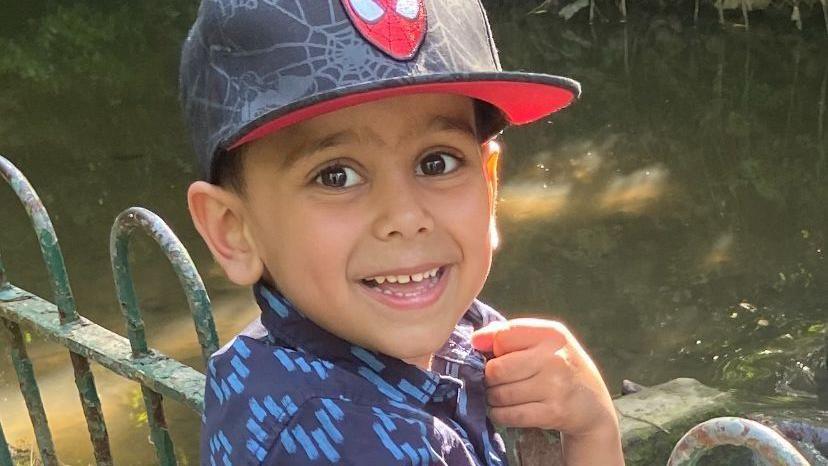
Yusuf Nazir died eight days after he was sent home from hospital with antibiotics
- Published
A new report into the death of a five-year-old boy who died days after being sent home from a hospital emergency department has found the NHS failed to listen to a "mother's instinct".
Yusuf Nazir died eight days after he was prescribed antibiotics by staff at Rotherham General Hospital to treat a lung infection.
The 139-page NHS England report said the concerns of Yusuf's family were repeatedly not acknowledged by healthcare providers.
The health service said it accepted the report's recommendations and acknowledged the issues the investigation had uncovered.
Yusuf's family has called for a full inquest and insisted that the NHS learn lessons from his death.
His mother, Soniya Ahmed, said: "Every night when I close my eyes I hear Yusuf's helpless voice in my ears saying, 'Mummy, I can't breathe, I can't breathe, I really can't'.
"And the image of him being handed over to me after his life ended, as though someone has torn my heart out and placed it in my hands."
She said her son was "left to die right beside me".
"He was crying in pain yet he received no pain relief.
"They say a mother's instinct is a powerful thing, it can neither be ignored nor explained, yet my concerns were ignored each and every time."
Ms Ahmed described the failings in his care as "truly shocking", citing 13 opportunities the report outlined to escalate her son's care.
"Yusuf deserved better, every child does. I will never stop speaking his name. I will never stop fighting for him. We demand accountability, we demand change," she added.
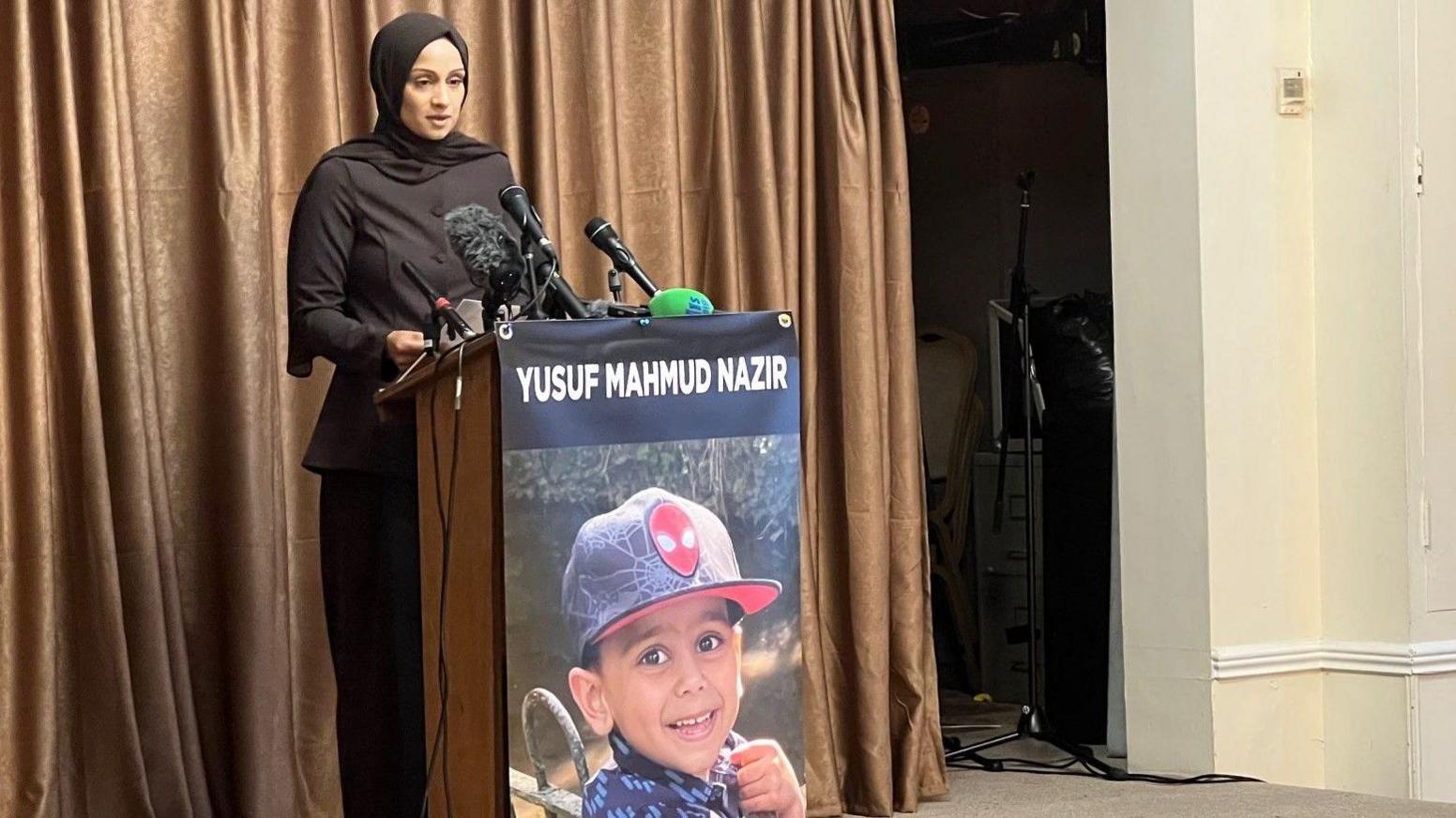
Soniya Ahmed addressed a press conference after the release of the report into her son's death
Yusuf, who had asthma, was taken to a GP with a sore throat and feeling unwell on November 15 2022. He was prescribed antibiotics by an advanced nurse practitioner.
Later that evening, his parents took him to Rotherham Hospital urgent and emergency care centre where he was seen in the early hours of the morning after a six-hour wait.
He was discharged with a diagnosis of severe tonsillitis and an extended prescription of antibiotics. His family believe he should have been treated with intravenous antibiotics
Two days later Yusuf was given further antibiotics by his GP for a possible chest infection, but his family became so concerned they called an ambulance and insisted the paramedics take him to Sheffield Children's Hospital rather than Rotherham.
Yusuf was admitted to the intensive care unit on November 21 but developed multi-organ failure and suffered several cardiac arrests which he did not survive.
He died on 23 November.
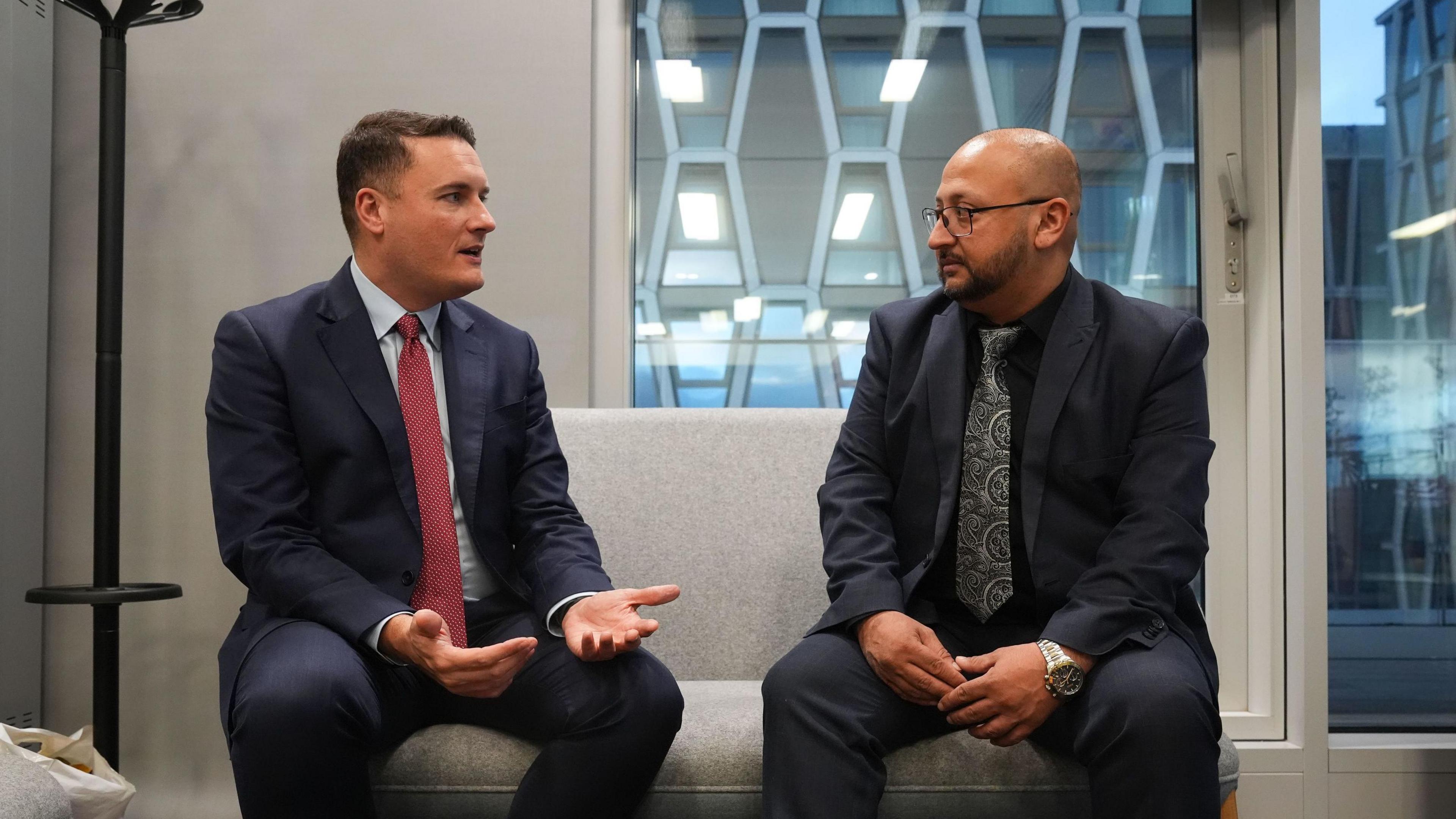
Yusuf's uncle Zaheer Ahmed met health secretary Wes Streeting last year
A report into Yusuf's case in October 2023, by independent consultants and published by NHS South Yorkshire, found his care was appropriate and "an admission was not clinically required", but this was rejected by his family.
The new report, led by the former general secretary of the Royal College of Nursing, Peter Carter, stated: "Our primary finding is that the parental concerns, particularly the mother's instinct that her child was unwell, were repeatedly not addressed across services.
"A reliance on clinical metrics over caregiver insight caused distress for the family.
"This led to a lack of shared decision-making and there was limited evidence of collaborative discussions with Yusuf's family around clinical decisions, leading to a sense of exclusion and reduced trust in care plans."
In the report it was agreed that Yusuf had pneumonia and sepsis, which led to respiratory failure and his death, but "no causative agent" could be found.
It said: "It is impossible to make a statement on whether (intravenous) antibiotics or earlier detection would have prevented Yusuf's death."
The report found the care provided at Sheffield Children's Hospital "did not meet the standards to be expected on the ward".
It found that despite Yusuf being seen by a consultant at least once, the documentation of who reviewed him and when was inadequate.
The report also outlined 23 separate healthcare contacts across four organisations "with no single, co-ordinated record or oversight, contributing to fragmented and disjointed care".
It also found the administration of intravenous antibiotics was not monitored in line with national standards and cannula insertions and fixation were not documented, contrary to Royal College of Nursing standards.
Health Secretary Wes Streeting, who met Yusuf's family last year, said their concerns had "repeatedly not been addressed" by the NHS.
He said: "There are no excuses for the tragic failings in the lead up to Yusuf's death and I know first hand how hard it has been for his family to live without the answers they deserve.
"It is now the responsibility of the NHS to implement the recommendations in this report so that the family can at least take small comfort in knowing that because of Yusuf, and thanks to Yusuf, children will be safer and better cared for in the future."
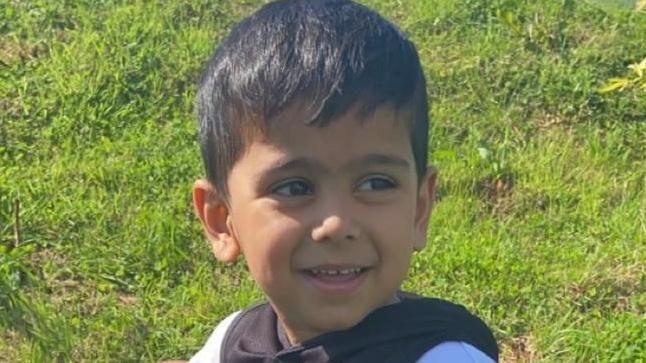
Yusuf Nazir had suffered from asthma and recurring chest infections before his death
Rotherham MP Sarah Champion backed the family's call for an inquest.
She said: "The two inquiries the family have demanded and secured have showed 16 failures.
"I will stand with the family to make sure every one of those is acted on because that is the only way we can prevent this happening in the future.
"But still now they do not know why their beloved son died. So I stand in solidarity with them to get that inquest because it's only with the truth that you will be able to move forward."
Prof Aidan Fowler, national director of patient safety in England, said the health service was working to "ensure families are actively involved in care decisions".
The report made a number of recommendations including training around communicating with caregivers and recognising and responding to "diverse cultural needs".
It also called on the health service to record parental concerns, review workloads for ambulance crews, and review training around cannula, vascular access insertion, and intravenous therapy.
Dr David Crichton, chief medical officer at NHS South Yorkshire, said the organisation accepted the report's recommendations in full.
Yusuf's family called on the trust to ensure families were told that when their children were on a ventilator they may still be able to hear them, and should be encouraged to interact with them.
They also requested that any items such as clothing or equipment can be saved so families can keep as memories when a child died.
Get in touch
Tell us which stories we should cover in Yorkshire
Listen to highlights from South Yorkshire on BBC Sounds, catch up with the latest episode of Look North
- Published2 December 2024
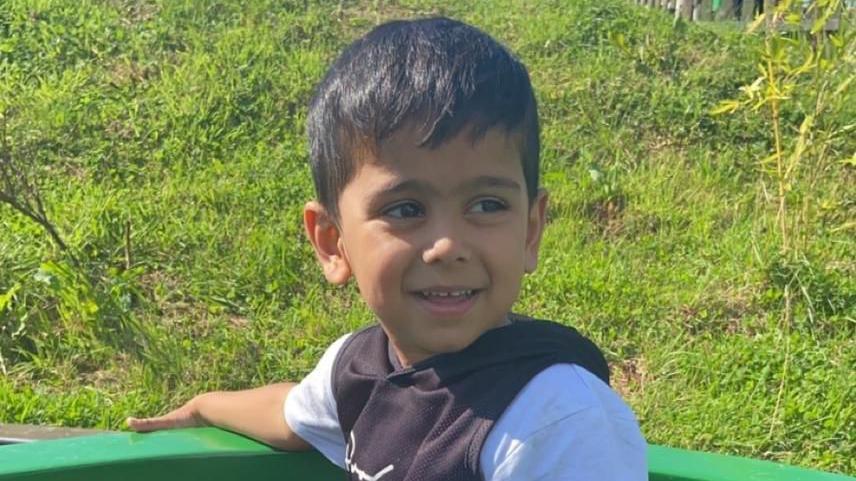
- Published28 November 2024
